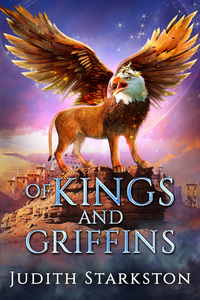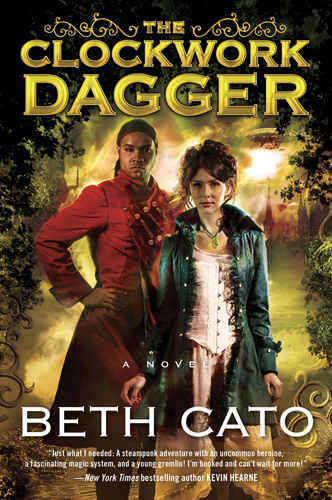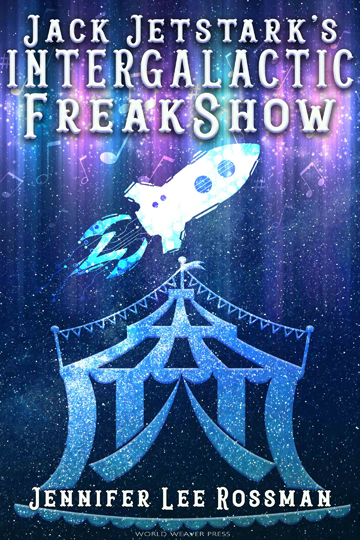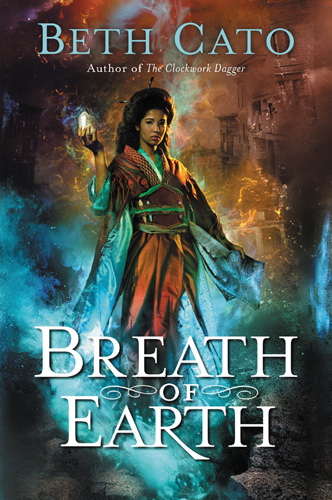Judith Starkston’s Of Kings and Griffins is out today!
The Phoenix area is home to a lot of awesome authors, and Judith Starkston is among them. Her Tesha historical fantasy series is unique because it’s inspired by the Hittite Empire. Yes, we’re talking ancient history, an era usually ignored these days except for a few brief mentions in school history class.
The 3rd book in the series, Of Kings and Griffins, is out as of today. I read it as an early draft and I’m excited to see how it is in final, polished form! This is a book that works well as a stand-alone. You can grab it in ebook or paperback at Amazon.

I do highly recommend the whole series, though. Start with Priestess of Ishana (in ebook and paperback) and continue from there. If you love historical fiction as I do, you’ll appreciate some fantasy-tinted insights into a time and setting we know little about. If you want to know more about the actual history that inspires her books, her blog is a great resource.
[Book links above utilize the Amazon Affiliate program.]
Read MoreStoryBundle includes 12 books (including mine) for $15!
Here’s how easy this is: pay at least $15. If you can, throw in a few more bucks to support authors. Get 12 ebooks, no DRM. Your summer reading is set! The theme is Crossing the Veil, so expect transferred souls, ghosts, and all kinds of supernatural goodness.
This deal won’t be available for long.
#SFWAPro
Read MoreGuest Author Jennifer Lee Rossman Visits with an Excerpt of Jack Jetstark’s Intergalactic Freak Show
I’m happy to welcome Jennifer Lee Rossman as a guest today! Jennifer’s book Jack Jetstark’s Intergalactic Freakshow is out from World Weaver Press today, and it sound awesome! The title alone is enticing, but read on and grab a copy of your own today.
Back cover summary: Jack Jetstark travels the universe to seek out the descendants of superpowered freaks created long ago by VesCorp scientists. The vibrations encoded in a particular song transform the members of Jack’s crew into a firebreather and an angel, a wildman and telepathic conjoined triplets, so they hide the truth of who they really are with the theatrics of a carnival.
The song plays every night through the receptor Jack carries with them, but when one night it has a different ending and their temporary powers become permanent, Jack believes the change is a signal from the woman who sent him on this quest in the first place. He and his freaks must navigate a universe at war to protect the love of his life.
But does the ruler of VesCorp really need protecting?
Excerpt:
Not a lot of money in the traveling carnival business anymore. Enough to make a living, but not like it used to be, back when fleets of enormous ships traveled the skies, bringing roller coasters and virtual reality machines to the residents of the universe. Sometimes it felt like we were the only ones out there, with our meager rides and food stalls offering unhealthy fried things on sticks; nothing special that couldn’t be found at any summer funfair on any planet, moon, or decently sized asteroid.
But people wanted to see the unusual, to be scared out of their wits by the alien creatures from the far-off places they could only dream of visiting. Therein lay the appeal of the sideshow, without which our profit margins would wither to nothing and the Rubeno and I would be stuck delivering cargo again. She was built for that kind of work. Me, not so much.
I much preferred life as a space carny. If nothing else, it was a more enjoyable way to make a buck, and far less lonely. In a world that shunned and ridiculed, our little piece of space was a welcoming reprieve. It was a home, it was a family.
Merulo warmed up dinner in an old food heater, setting chipped plates on the table while he attempted the impossible task of wrangling his unruly mop of black hair. The triplets eased their pained minds by chatting among themselves and watching game shows on a screen made mostly of static. And Lily sat in front of a lighted mirror, removing the heavy mascara that made her eyes pop while undoubtedly planning our route to the next planet in her brain that never slowed down.
She noticed me watching and arched a thin eyebrow. “What?”
“It’s just nice,” I said. “All of this. It isn’t like the world out there. It’s real.”
A small voice spoke from behind me. “It’s fake.” I turned to see the girl, the one with the bits of hay in her red braid, standing in the doorway. Shock and disillusionment cast shadows over her freckled face, the horrors of the show paling in comparison to this glimpse backstage.
“How did you get in here?” I demanded, not expecting any trouble but sure that I had locked up the carnival entrance as well as the stairwell leading to our living quarters.
“Is any of it real?”
I looked back at my crew, this time through her eyes; disturbing sights to say the least. A wildman in a robe and eyeglasses, a jovial grin on his chubby face. Conjoined triplets separated and sitting on opposite sides of the room, the sickly pallor having been wiped from their dark skin. An angel in jeans and a crocheted shawl, her beak transformed into a nose and her bare shoulders showing no sign of ever bearing wings.
Even I’d changed since the show, from the fiery barker who spouted words with ease to a broody slacker in a vest who’d couldn’t turn a phrase to save his life.
Not hard to understand her surprise. The only thing worse than seeing terrible, man-eating monsters was seeing them without their disguises, seeing that; deep down, they were only human, same as anyone else. I liked to keep that particular fact a secret, as people tended to pay much more to see anatomical anomalies than they did to see ordinary people, but I didn’t see a way out of this. She looked too smart to fall for anything I could pull out of thin air.
“Is it all fake?” she asked, stepping into the room.
I put my arm out to stop her. “I asked you first; how did you get in here?” I tried not to sound too upset, but the thought of someone trespassing on my ship, my secure ship where my people expected to be safe, infuriated me. If a mere girl could get on board without triggering the alarms, why not a crew of galactic pirates?
The girl retreated, her gaze flicking from one person to the next before landing on me. “I’m sorry. It’s just… it’s what I do.” She fiddled with her hands and tugged down the sleeves of her red and black jacket.
“What does that mean?” Lily asked, coming to my side and taking over the interrogation while the others watched with caution.
“It’ll be easier if I just show you.” The girl closed and locked the door behind her, then knelt to peer at the electronic lock. She placed her palm over the device and the lock clicked open a moment later. She pushed open the door and turned to us, the faintest hint of a smile on her lips.
“That’s impossible,” Theon said as he came to inspect the lock, sounding almost insulted at the breach in security. “I installed it myself. It only opens with our keycards.” He gave the girl a sideways glance, his dark, deep-set eyes narrowed. “They’re electronic.”
She shrugged, offering a wide grin that showed too many teeth. “So am I.”
Buy the book in paperback or ebook!
Amazon
Barnes & Noble
World Weaver Press
Jennifer Lee Rossman is an autistic and physically disabled sci-fi writer and editor. Her work has been featured in several anthologies, and she co-edited Love & Bubbles, a queer anthology of underwater romance. She blogs at jenniferleerossman.blogspot.com and tweets @JenLRossman
Read MoreSFF Grand Book Giveaway!
Psst, want to enter to win a bunch of awesome books–no matter where you live in the world? The winner gets over a dozen books total from me, Kate Heartfield, SL Huang, Aliette de Bodard, Jim C. Hines, JY Yang, and Kate Elliott!
While we’re encouraging entrants to sign up for our mailing lists, in keeping with new GDRP rules from Europe, there is no requirement to sign up for a single list. When you click on the author buttons, you get to choose if you want to sign up for a list or not. (If you’re already subscribed to my Cato Log, that means you can easily enter this by choosing the ‘don’t subscribe’ option.)
This contest runs through June 25th.
#SFWAPro
Read MoreComprehensive Book Review of Handbook for Mortals
If you follow publishing news, you likely recognize the title Handbook for Mortals by one Lani Sarem. It has been a subject of morbid fascination since it infiltrated the New York Times Bestseller list out of the blue. Some crack reporting by YA Twitter painted a picture that was stranger than fiction (seriously, read that link if you have not). For all that this was a so-called bestseller, almost no one had actually seen the book, much less read it. The few excerpts that began to float around Twitter showed the novel to be of… dubious quality.
I wanted to read it for myself.
The publisher obliged me through the galley site NetGalley.
Here, for your edification, is my review. It was not easy to write. I don’t like doing negative reviews, but I wanted to present a comprehensive analysis of the book that created so much fuss and furor.
 Handbook for Mortals by Lani Sarem
Handbook for Mortals by Lani Sarem
My rating: 1 of 5 stars
I received this ebook through the publisher via Netgalley. As a published author myself, I am well aware of the way that author Lani Sarem and her team manipulated the New York Times list. I also know that the Goodreads ratings for the book consist of mostly one-star ratings due to the book’s reputation and the sample available on Amazon.
I don’t rate or review any book unless I finish it. I wanted to judge Handbook with as much fairness as I could, even knowing its history, so I endeavored to read the entire thing. I finished it.
If this had been any other book, I would have declared it Did Not Finish (DNF) in the first few pages.
Handbook reminds me of my first novel efforts, the ones I trunked and will forever more keep trunked. Because of that, I sympathize with the author to a degree. I wish she had had other experienced authors around her to offer honest feedback–or maybe she did, and she ignored their feedback to stay true to her vision. I did that with my first novel attempts, too.
The book reads like a non-reader’s mistaken assumptions of what YA is, though this book is not YA (the heroine is about twenty-five). For a proclaimed fantasy book, magic is barely present (and very little of it actually done by the heroine), and doesn’t make sense. It’s… kind of like a romance, but with no chemistry. The entire middle of the book consists of dating scenes interspersed with clothes shopping.
The first few pages show an ignorance of novels and how they are formatted at a basic level, as it actually has a foreword introducing the author. An intro like this is included for anthologies or collections, not for a debut book. I don’t know who the author is and her movie fandom creds aren’t relevant. The book needs to sell itself.
As Handbook begins at chapter 0, we meet Zade as she argues with her mother and departs Tennessee for her new job in Las Vegas. The narrative is overwritten–again, a common flaw in early novels efforts and rough drafts, period–and the paragraphs are dense, with the dialogue often buried. Zade’s actions here are the only time in the book that she shows agency.
Agency means the character instigates the plot. She/he makes the decisions and carries the book, rather than doing what author-god decrees. Agency within a plot is a tricky thing to master; honestly, my agent and editor still ding me on this during revision stages.
But this point of criticism leads to another issue: there is no plot in Handbook. She goes to Vegas and joins an illusionist’s show, and starts going on a lot of dates with Mac and Jackson, though all men find her to be incredibly hot and almost all women loathe her. This is explained at one point as a side effect of Zade’s immense magical power. At one point, some other magic user attacks her, and makes an odd cameo appearance later; the ending implies a second book is supposed to explain this person, but it has zero bearing on anything in this book.
This book is about dating. And shopping. But for a book that tries to play up the love triangle angle, ala Twilight, there is no triangle. Mac has all of the emphasis and character development–actually, he’s the only character who has an arc and develops in any way, and he’s the only one who acts at the climax. He has many of his own scenes shown in italics (though the use of italics is inconsistent and confusing, as some other characters’ POVs are seen through it sometimes). The other character, Jackson, is a musician and good-looking, and has the perk of actually believing in the abilities of tarot readings (one of Zade’s skills), but it’s pretty clear he has no chance with Zade.
As for the romantic dialogue, it’s… George Lucas-esque. That goes back to that matter of agency. As all men love and want Zade, she doesn’t need to make any effort to win over Mac or Jackson.
Zade had potential to be an interesting character. The book only expresses vague ideas of what her magic is actually like and there is zero growth in her abilities–the kind of thing an actual fantasy book needs. Zade is perfect in every way, a cliché Mary Sue (again, a new author trait). Everyone thinks she’s hot. Compliments on her hair are a regular theme (it reads like a Sally Beauty Supply ad at a few points, quite literally). She can also play guitar and sing, and she loves “crotch rockets” just like Mac. And as the ending of the book shows, she is morally bankrupt.
I suppose I should get to the ending.
Most books use an ending to show how the hero/heroine has grown throughout the book. It’s an opportunity for a grand show of powers, a confrontation with a villain, etc. But this book has no character growth, and while it has a few unpleasant people, there is no villain.
Instead, Zade tries to pull off a grand illusion during the Vegas show that utilizes “dangerous magic.” She uses Mac as her anchor for this magic, but he’s mad at her, so he steps outside to smoke. (Yes, there are several points like this that make no sense–he could step out for a phone call, or be sick, or go on vacation, etc). Cue her magic going awry. The show ends, and she goes off stage, falls unconscious, and starts bleeding everywhere. At the hospital, the doctor says Zade is internally bleeding and will quickly die.
Zade is rushed back to Tennessee to her mother’s advanced magical care, where, as Zade is bleeding to death, her estranged parents reunite and casually tell Mac the story of how they met. There is zero tension throughout this long section. Zade’s loved ones are literally at the kitchen table, drinking tea, and reminiscing about the late 1970s as Zade bleeds out in the next room.
How do we know this? That goes to the morally bankrupt part: Zade has ripped memories of all these events from her parents, Mac, and everyone who witnessed her collapse in Vegas. The very end of the book has some vague mention of her getting permission from those closest to her, but she obviously couldn’t get this from everyone, as her magical skills are a big secret.
So yeah. She thieved memories from almost everyone she knows, and also rifled through her parents’ thoughts when they were young and horny, which has another level of violation and squick. There is absolutely no moral consideration of these actions.
Also note that Zade falls unconscious at 67% through the ebook. She wakes up at 91%. The climax, such as it is, consists of Mac plunging a dagger-that’s-really-like-an-EpiPen (that’s how the book explains it) into her heart.
She recovers, returns to Vegas where everyone greets her with a surprise party (the proper welcome for someone who nearly died), and her estranged parents remarry. The book ends with the promise (threat?) of a sequel to come that will explain the weird magical girl who tried to blast Zade at the mall.
I wanted Handbook to be worthwhile of the fuss and effort that went into getting it on the NYT list. It’s not.
#SFWAPro
Read More5 Tips for Writers Writing Book Reviews
Book reviews are vital to authors, but when you’re an author yourself, writing reviews of other books can be tricky. If you’re snarky and cruel, wielding one-star reviews like shurikens, you run a real risk of isolating yourself within the author community and with publishers.
That doesn’t mean that you lie and say you like a book that you loathe. It does, however, mean you act with tact and regard the author and their work with respect. This is not easy if you feel rather vehemently about a certain book.
My own background here: I review everything I read, and I’m in the top 1% of reviewers on Goodreads with over 1100 titles listed.

– Don’t be afraid to remove or hide old reviews. Let’s say that your publishing career has evolved and you’re now publishing books in a genre that you have reviewed rather harshly in the past. Consider this: you will meet these authors at conventions or be on panels together or they might even be asked to blurb your book. Set those old reviews to be private or remove them, and you’ll be removing some potential awkwardness, too.
– Another approach: some authors keep a separate account for book reviews so they can do so anonymously and honestly.
– Be careful about marking a friend’s book as being “currently read.” If you end up not liking it, and they know you are reading it… yeah. I like to wait until I am deeply into a book before I list the status online.
– Don’t be afraid to mark a book as Did Not Finish (DNF). If you’re like me, you have gobs of books waiting in the to-read pile. Life is short; don’t waste it on an unpleasant book! This is also a tactful way to avoid the dilemma of writing a review for a book that just plain didn’t work for you.
Along those same lines, you should not feel like you must finish a book sent from the publisher on places like NetGalley. Mind you, it took me a few years to get the nerve to do this because I felt obligated to finish the provided books. No more. I will go through NetGalley, mark the book as done, and send a note saying something like, “This isn’t a review. I found the book was not to my taste, but I’m very grateful you gave me the opportunity to read it.”
– The most important advice of all: Write every review as if the author will read it. They very well might. I think of it as like writing a story critique: I note the positive, and gently and constructively make observations about the negative.
If you finish a book but have mostly unkind things to say (especially if it’s in your genre), act with care. In such situations, I will type up the review on Goodreads/LibraryThing but keep it set as “private” so I can access it later for my own records. I may or may not leave a star rating.
Always keep in mind the Golden Rule: Treat other authors as you would like to be treated. Most books are not inherently awful. We each possess different tastes; respect that.
Reposted from Novelocity.
Read More









